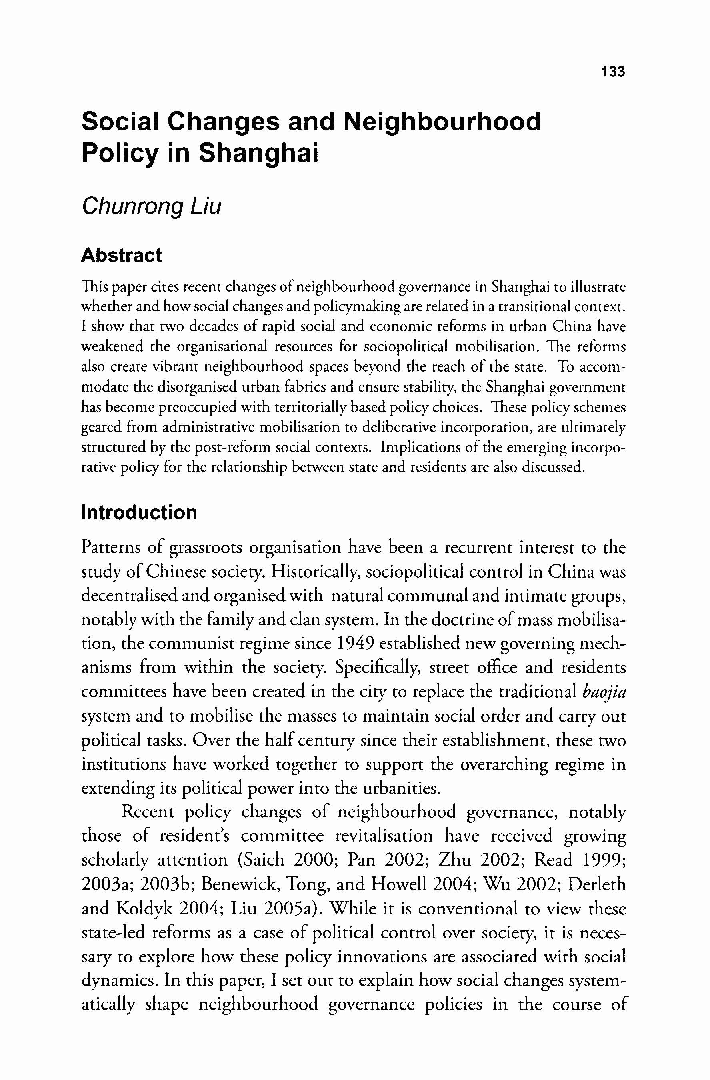| Article ID | Journal | Published Year | Pages | File Type |
|---|---|---|---|---|
| 1061615 | Policy and Society | 2006 | 23 Pages |
This paper cites recent changes of neighbourhood governance in Shanghai to illustrate whether and how social changes and policymaking are related in a transitional context. I show that two decades of rapid social and economic reforms in urban China have weakened the organisational resources for sociopolitical mobilisation. The reforms also create vibrant neighbourhood spaces beyond the reach of the state. To accommodate the disorganised urban fabrics and ensure stability, the Shanghai government has become preoccupied with territorially based policy choices. These policy schemes geared from administrative mobilisation to deliberative incorporation, are ultimately structured by the post-reform social contexts. Implications of the emerging incorpo-rative policy for the relationship between state and residents are also discussed.
